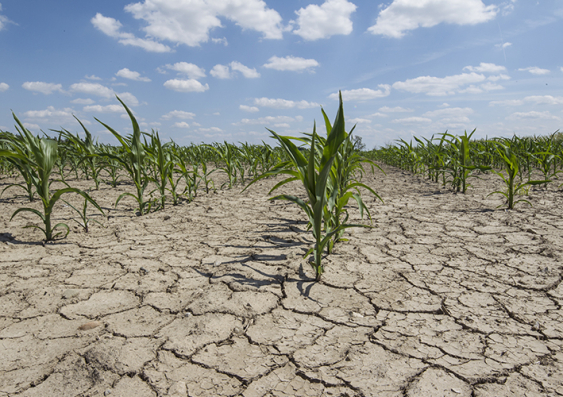New projections by the ╣·├±▓╩Ų▒ Institute for Climate Risk & Response (ICRR) reveal a 4┬░C rise in global temperatures would cut world GDP by around 40% by 2100 ŌĆō a stark increase from previous estimates of around 11%.
fixes an oversight in the current economic model underpinning global climate policy, toppling previous carbon benchmarks.
The results support limiting global warming to 1.7 ┬░C, which is in line with significantly faster decarbonisation goals like the Paris Agreement, and far lower than the 2.7┬░C supported under previous models.
Accounting for an interconnected world
Lead researcher Dr Timothy Neal, a Scientia Senior Lecturer in the School of Economics and also the ICRR, says his analysis uses traditional economic frameworks that weigh immediate transition costs against long term climate damages, but refine a key input.
ŌĆ£Economists have traditionally looked at historical data comparing weather events to economic growth to cost climate damages,ŌĆØ he says.
What they fail to account for, he says, are interruptions to the global supply chains currently buffering economic shocks.
ThereŌĆÖs an assumption that some colder countries, like Russia or Canada, will benefit from climate change, but supply chain dependencies mean no country is immune.
ŌĆ£In a hotter future, we can expect cascading supply chain disruptions triggered by extreme weather events worldwide.ŌĆØ
Dr Neal says the economic case for stronger climate change actions is clear.
ŌĆ£Because these damages havenŌĆÖt been taken into account, prior economic models have inadvertently concluded that even severe climate change wasn't a big problem for the economy ŌĆō and itŌĆÖs had profound implications for climate policy.ŌĆØ
The local-only damage models have been used in the economic forecasting that has shaped the major powersŌĆÖ climate policies and played a crucial role in international agreements.
No nation immune to climate change harm
Dr Neal says the updated projection should underscore to all nations that they are vulnerable to climate change.
ŌĆ£ThereŌĆÖs an assumption that some colder countries, like Russia or Canada, will benefit from climate change, but supply chain dependencies mean no country is immune.ŌĆØ
But, Dr Neal says, thereŌĆÖs still work to be done. His research doesnŌĆÖt account for climate adaptation, like human migration, which is politically and logistically complex and not yet fully modelled.
ŌĆ£We continue learning from how we see climate change impacting our economy right now, from rising food prices to insurance costs, and we need to be responsive to new information if weŌĆÖre going to act in our best interest.ŌĆØ
Media enquiries
Elva Darnell
News & Content Coordinator
╣·├±▓╩Ų▒ Science┬Ā| Institute for Climate Risk & Response
Related stories
-

The 2025 federal budget fails the millions of voters who want action on AustraliaŌĆÖs struggling environment
-

National parks and other protected areas often fail to conserve EarthŌĆÖs forests, research finds
-

Some economists have severely underestimated financial hit from climate change
-

Meltwater from Greenland and the Arctic is weakening ocean circulation, speeding up warming down south




.jpg)
